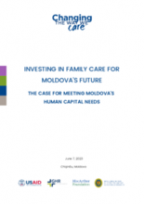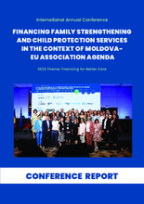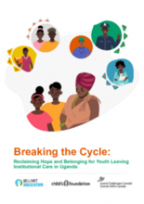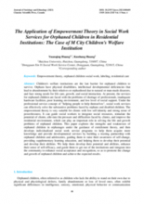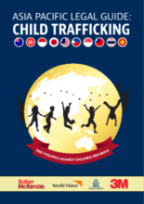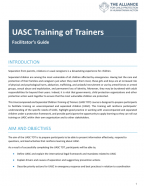Investing in Family Care for Moldova’s Future: The Case for Meeting Moldova's Human Capital Needs
The Investing in Family Care for Moldova’s Future presents the case for investing in a more child-centered social welfare system in Moldova and provides specific estimates on the resources needed including an estimate of the resources required to fund the spectrum of programs and services Moldova needs to (i) prevent children from being placed in residential care; (ii) place children in safe, nurturing, and supported families; and (iii) transform residential settings into community assets that effectively meet community needs.

